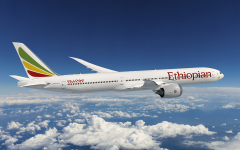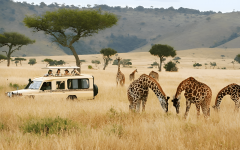 Small investments in accessibility and innovation can deliver be a game-changer for tourism destinations everywhere. But, despite 1.3 billion worldwide people already experiencing significant disability, many destinations and tourism businesses are still failing to embrace the many benefits of welcoming these travellers. The latest research makes clear the growing demand for accessible travel: Globally, 1.3 billion people already experiencing significant disability.50 million of whom live in the Middle East region alone, 1 in 6 of the population set to be aged 60 and over in 5 years’ time, Travellers with disabilities being accompanied by 2 to 3 additional clients. The new guidelines on accessible tourism, produced by UN Tourism and our partners, set out how both destinations and businesses can harness the power of innovation and investment to boost accessibility in every way. Within the European Union, more that 70% of the 80 million persons with disabilities can afford to travel and enjoy tourism. In Asia and the Pacific, the potential market size is of 690 million people and in Latin America and Caribbean this figure reaches 85 million people.
Small investments in accessibility and innovation can deliver be a game-changer for tourism destinations everywhere. But, despite 1.3 billion worldwide people already experiencing significant disability, many destinations and tourism businesses are still failing to embrace the many benefits of welcoming these travellers. The latest research makes clear the growing demand for accessible travel: Globally, 1.3 billion people already experiencing significant disability.50 million of whom live in the Middle East region alone, 1 in 6 of the population set to be aged 60 and over in 5 years’ time, Travellers with disabilities being accompanied by 2 to 3 additional clients. The new guidelines on accessible tourism, produced by UN Tourism and our partners, set out how both destinations and businesses can harness the power of innovation and investment to boost accessibility in every way. Within the European Union, more that 70% of the 80 million persons with disabilities can afford to travel and enjoy tourism. In Asia and the Pacific, the potential market size is of 690 million people and in Latin America and Caribbean this figure reaches 85 million people.
UN Tourism Secretary-General Zurab Pololikashvili says: “Everybody should be able to enjoy tourism. At UN Tourism we have been advocating for accessibility for many years, and the benefits have never been clearer. The new guidelines on accessible tourism, produced by UN Tourism and our partners, set out how both destinations and businesses can harness the power of innovation and investment to boost accessibility in every way.”
UN Tourism guidelines for accessible travel
Accessible tourism is game-changer for improving mid- and low-season performance; its customers are extremely varied and loyal; it creates jobs and significantly improves reputation of destinations and businesses welcoming all visitors, with or without disabilities.
To help destinations and businesses tap into this potential, UN Tourism and its partners have released six sets of guidelines Produced by UN Tourism, ONCE Foundation and Spanish Association for Standardization (UNE), in collaboration with the European Network for Accessible Tourism and many other partners.
The guidelines put the International ISO 21902:2021 Standard on Accessible Tourism in the spotlight and target:
National tourism administrations and destination management organizations
Accommodation, food & beverage and MICE companies
Travel agencies and tour operators
Transport sector
Heritage sites and cultural institutions
Organizations and companies working in protected nature areas
All these guidelines offer strategic and actionable recommendations to provide accessible tourism experiences, so every person can enjoy travel and tourism on equal terms. Accessibility put in place, brings improvements in comfort, service and the quality of life of visitors and host communities alike. The forthcoming Madrid International Tourism Fair FITUR 2025 will serve as a meeting point to discuss different ways of putting these recommendations in place.
 Tourism Breaking News
Tourism Breaking News


